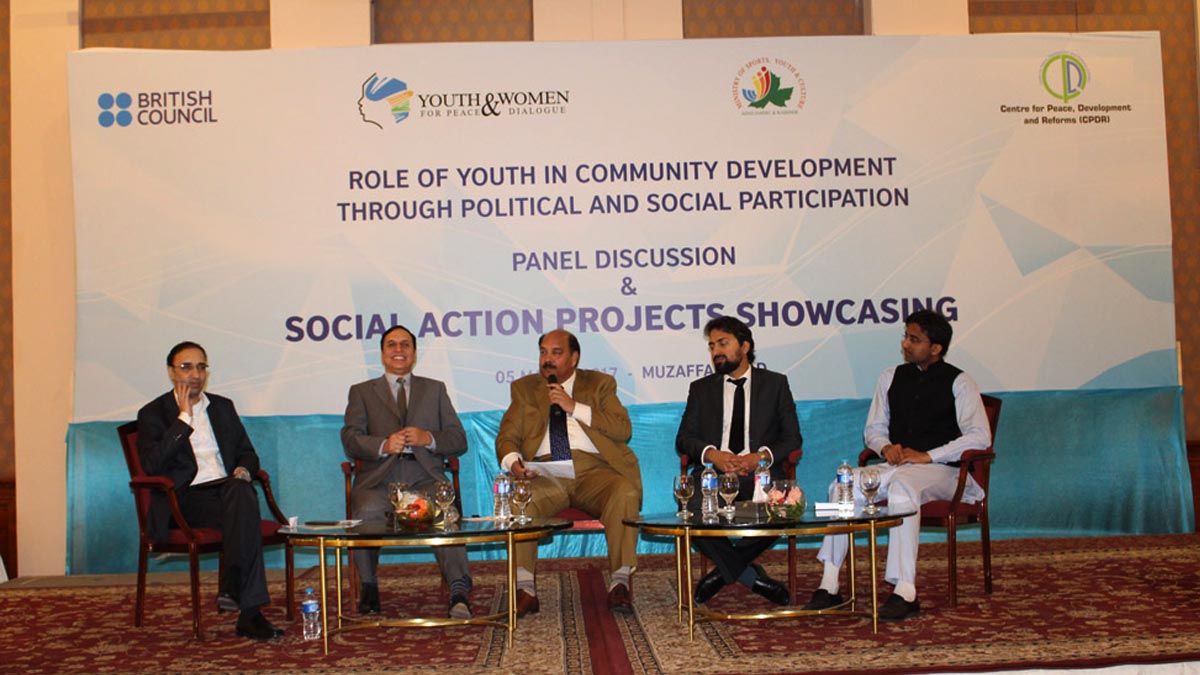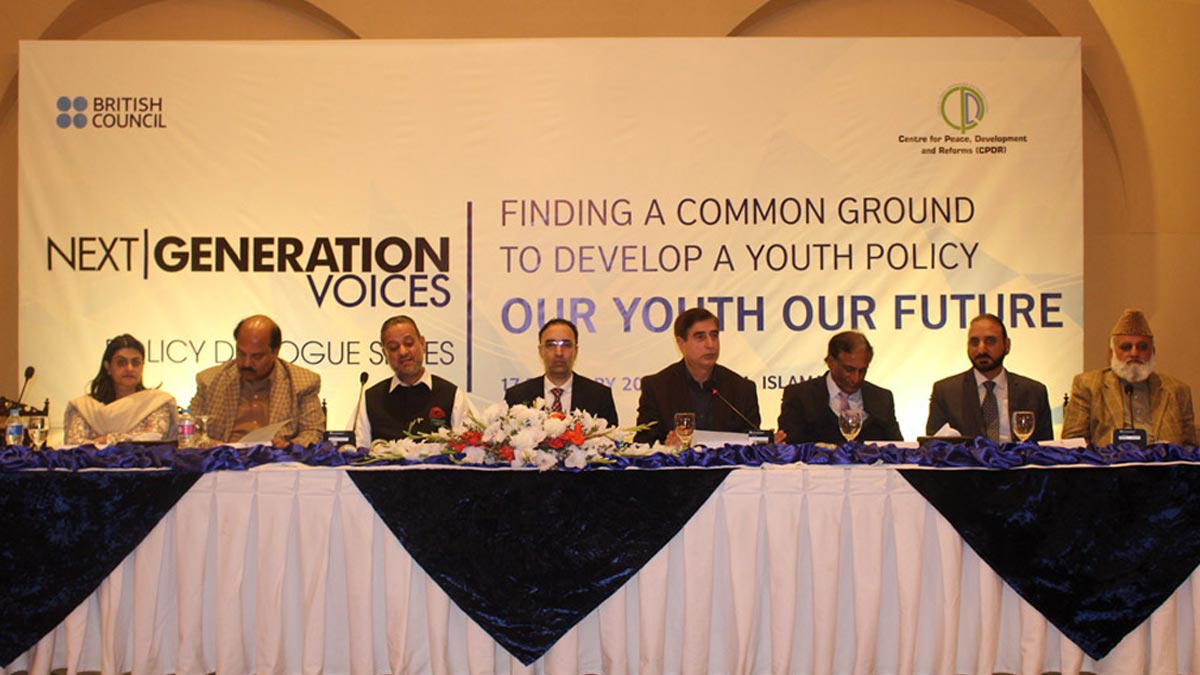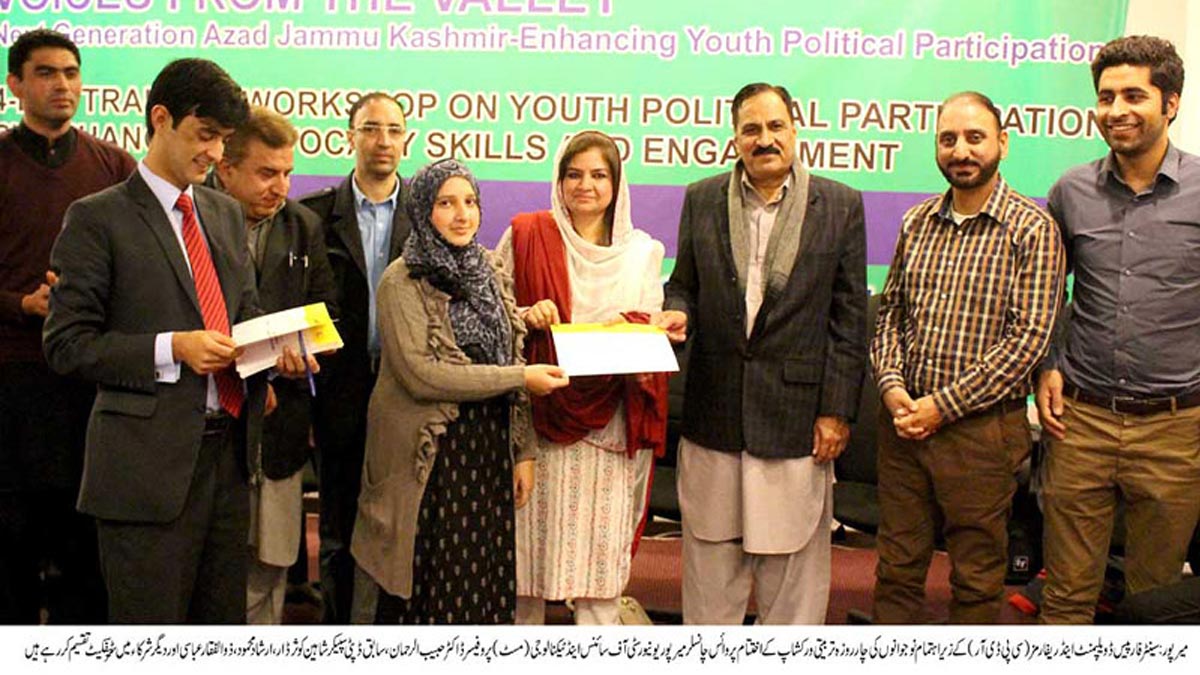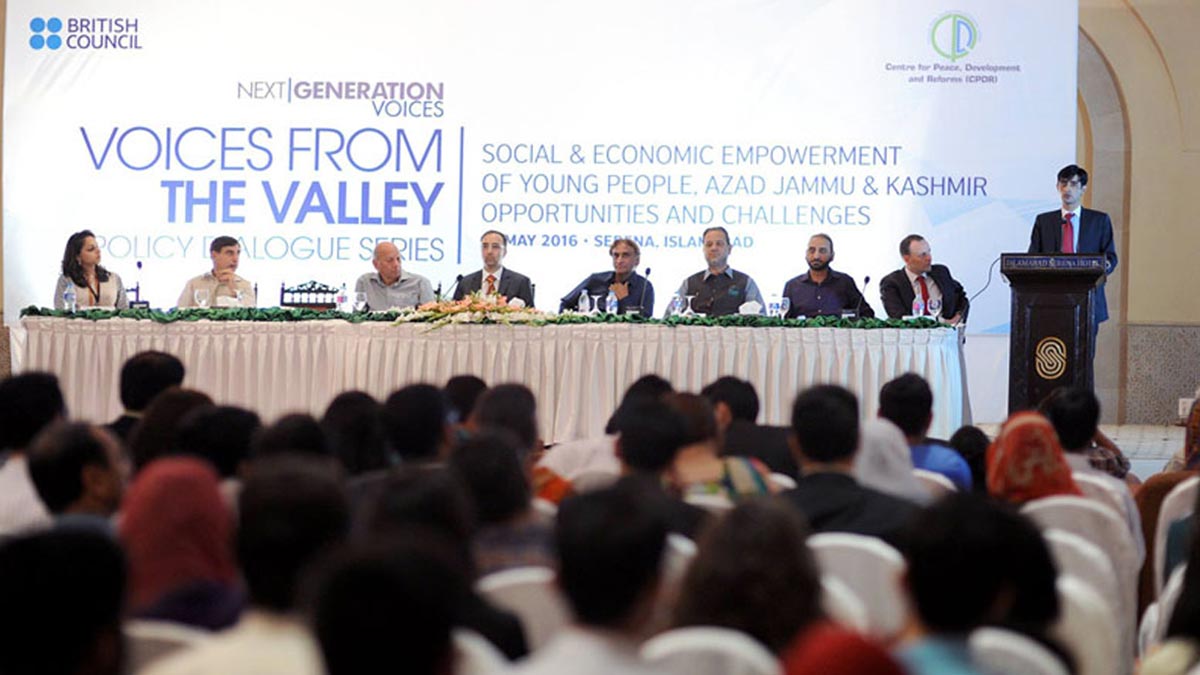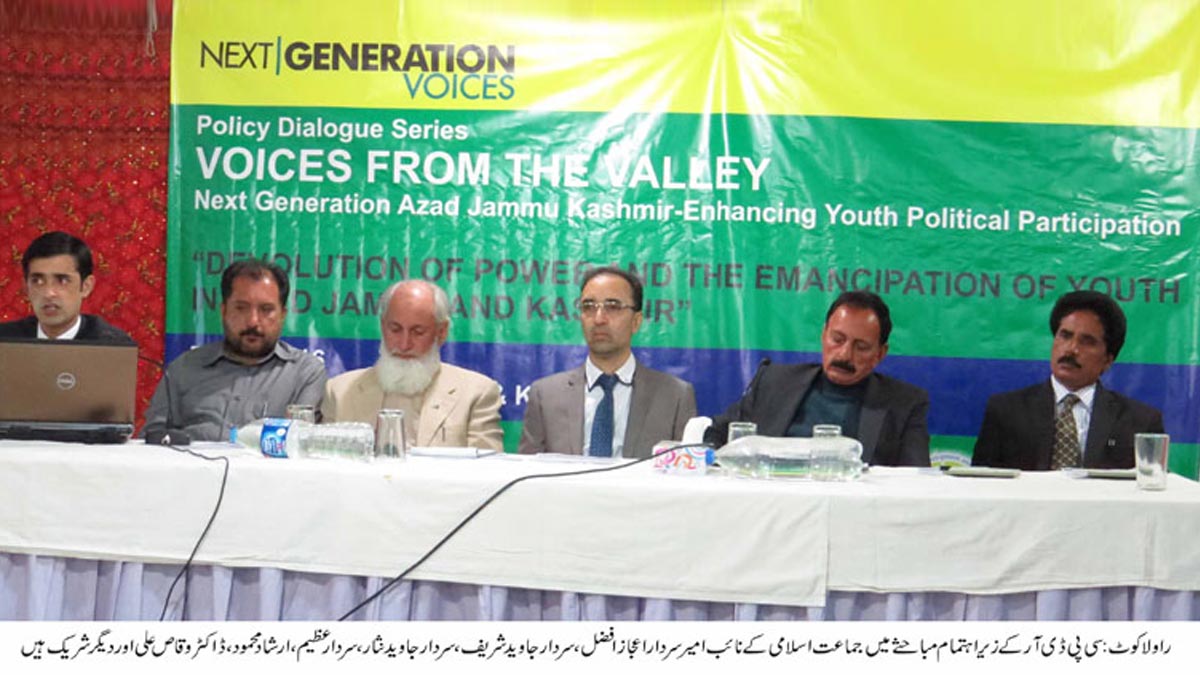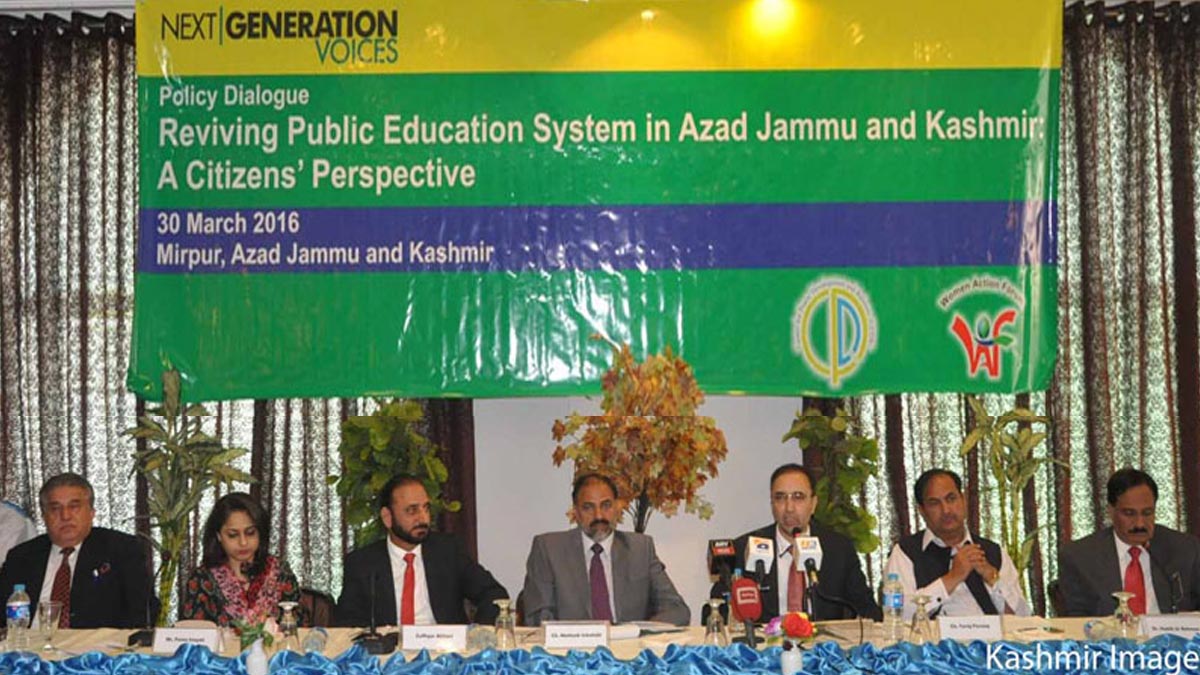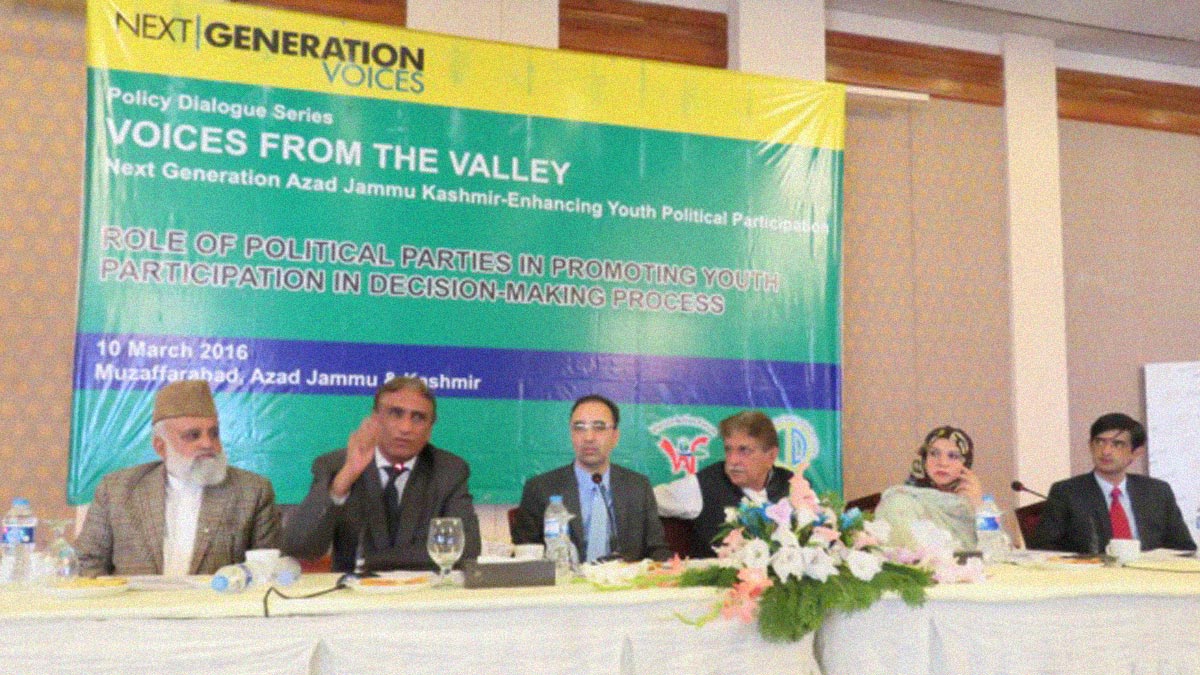- February 10, 2016
- @admin
- 0
- 10th February 2016
- Mirpur
It’s a feeling induced in me from a very tender age that the relationship between the state subjects of erstwhile Jammu and Kashmir isn’t a political or national relationship but a relationship of pain and common suffering. It’s a relationship of lost identities.
This pain of separation has had various forms of expression. There was a time when it was expressed through peaceful political resistance… and also a time when this pain was expressed through the violents. But it was always expressed in some form as the journey from hell towards heaven continues with some expressions.
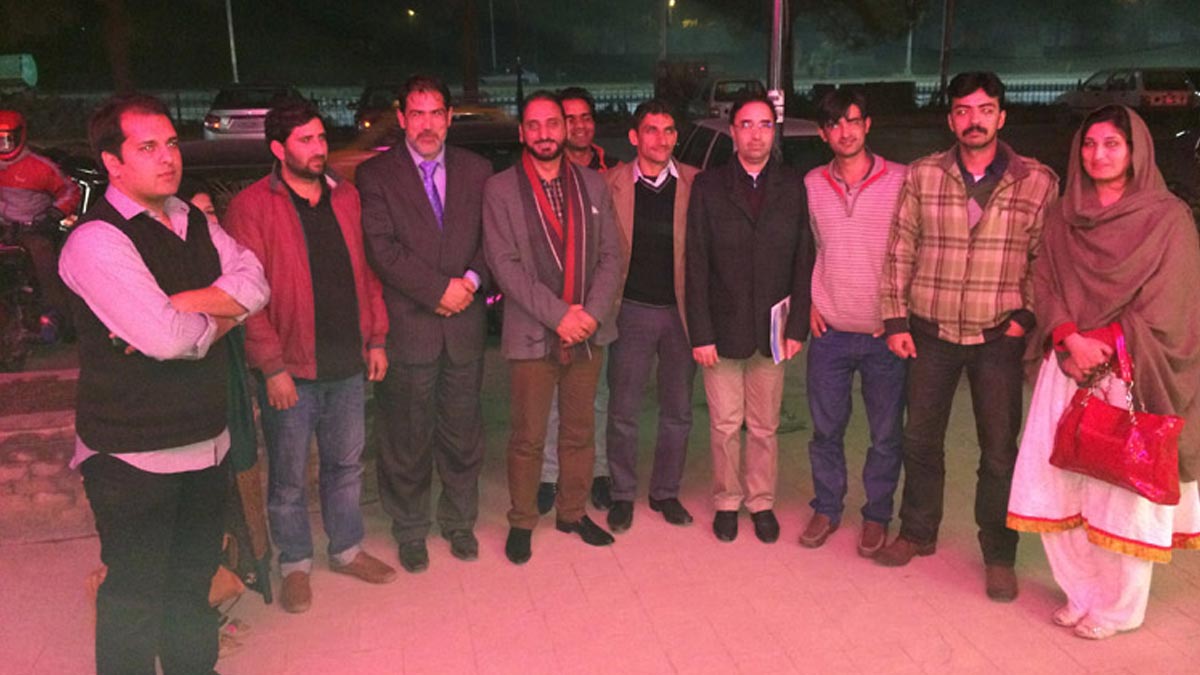
It was a result of this ‘keep going’ approach that we state subjects were able to meet and this blessing came through a philosophy that was not properly known to most of us. The sentimental value of this experience, when I was able to meet them for the first time, is invaluable. People with whom I had so much to share and so much to differ. I vividly remember my feelings walking up to the room where I was to live with a beloved stranger of my age from Srinagar, butterflies in the stomach with excitement and counting every second of our one week stay are few things I may never forget. We were to attend a meeting at 6:30 but both I and Junaid were late as our first conversation was beyond the limit of time. The freedom that we felt in those moments was something we Kashmiris are longing for from last 70 years.
The state narrative in Pakistan Administered Kashmir was always dominated with this thought that religion is perhaps the only binding force but this stereotype was challenged when I meet Chaitan Ghai of Indian Poonch. Our language was same and so was our approach towards lighter side of life. The yearn for revival of our lost statehood was more strong in Jammu cutting across all the religious and political bigotry.
Of all the participants that I came across in Cape Town, Chozang from Ladakh was the most creative and peaceful guy as he only talked about mechanisms based on non-violent approach and was very welcome of inclusivity across political and gender lines. Political differences and ideological clashes were there but in the end it was proved that camaraderie, based on the principles of mutual trust and shared dreams, is by far the most powerful connecting tool; more powerful than religion, class and culture. I don’t think we will ever be able to forget our departure scenes at the airport with our eyes filled with tears of separation.
Somehow, in a short span of time, we were able to establish a relationship where we could cherish the differences in a creative way and share common things in a constructive way.
Unity in Diversity is one philosophy that was at the core of Jammu & Kashmir’s political fabric and societal ethos but now this value has lost the significance it used to hold. In Cape Town, we a group of 20 youth were somehow able to revive that decades old spirit. Group leaders from both sides namely Syed Waqas Ali Kausar and Fayyaz Ahmad Dar did a splendid job as they guided the participants well and help build an atmosphere where a genuine heart to heart became possible. There were many differences and heated debates which weren’t easy to tackle with but the leaders really showed some metal while dealing with these issues.
The South Africa of today is Nelson Mandela’s dream that he constructed in Robben Island. The dream of a nation whose core value isn’t winning the opponent over but winning the opponent’s heart. This core value was alien to my doctrine of revolution and victory.
Conflict forcefully changes the entire fabric of the society. It has happened in Kashmir, where a nation having no history of violence became comfortable with Kalashnikov culture. Violence was meant to be a strategy only but it became a culture and this needs to be changed. In this regard, we can study how Madiba was able to change the culture of violence and revenge long before the conflict was solved.
From these meetings, I inferred that freedom has different meanings for all the state subjects but the feeling around this political nomenclature is same. For some, it’s about freedom of political activity, for some it’s about a sense of security and safety but for many like us, it’s a way of living that translates into a political goal of restoration of the lost nation and statehood.
Resistance to Kashmiris is a matter of life and death, but Mandela’s slogan was “Freedom in our lifetime”. This slogan depicts a particular mindset, which values human life and which conveys the message that the freedom struggle is a way of life, not the end of life… I’m convinced that promotion of a softer narrative through softer and meaningful means is the way forward.
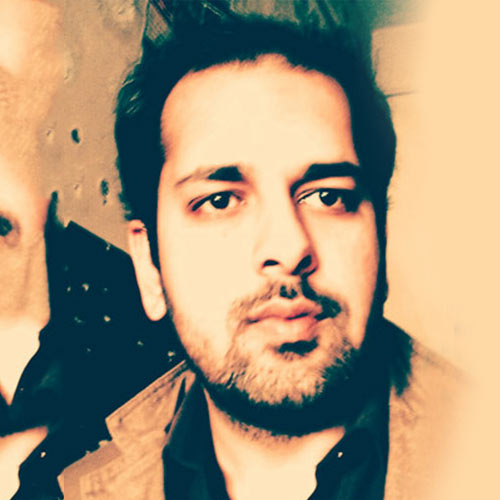
Sardar Qaisar Khan
The author is member core group of CPDR working on role of economy in conflict resolution. He is also a member of standing committee on governance of Youth Parliament Pakistan, Pildat.
He can be reached at: sqkhan47@gmail.com









